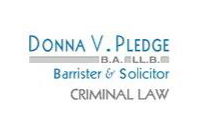What Should You Do When First Accused or Charged with Sexual Assault?
What Should You Do First:
If you are either charged with sexual assault or accused of sexual assault, the first thing you should do is contact a criminal defence lawyer in Toronto or the GTA who has the necessary experience to ensure a successful outcome.
It is important to hire a criminal defense lawyer who is experienced with sexual assault charges as soon as you are aware that you are being charged or accused of sexual assault.
Why Is It Important to Immediately Hire a Criminal Defense Lawyer?
It is important to hire a criminal defense lawyer immediately if you are charged or accused of sexual assault because they will make sure are protected. The criminal defense lawyer will ensure that you are not charged at all if possible. If you are charged, that all your rights are protected. But most importantly that you are released immediately after you are charged.
The criminal defense lawyer will make sure the police do not ask you questions. That is very important because any answers or statements you give to the police will be used against you. The experienced criminal defense lawyer will ensure you do not spend any more time than necessary in the police station.
The Potential Negative Effects of Being Charged or Accused of Sexual Assault
There are several potential negative effects of being either charged or accused of sexual assault. Your employment may be affected, depending on the type and your position.
For example, if you are a massage therapist and you have been charged with sexual assault on one of your patients. You can expect that a condition of your bail will most likely be that you are not allowed to perform any massages in your capacity as a massage therapist until the outcome of your sexual assault charge has been dealt with in the court. Even if you are only accused of sexual assault in the above case and not charged, your employer may decide to suspend you until the sexual assault complaint is dealt with or even dismiss you all together.
Your marital or spousal relationship may be affected. Your reputation with your peers is likely to be affected. It is difficult enough dealing with the effects of the charge or accusation of sexual assault whether alone or with the support of family and friends. You don’t have to deal with the legal aspects of being charged or accused of sexual assault. Hire an experienced criminal defense lawyer to help you.
Sexual Assault and Sexual Harassment Complaints in the Media
We are seeing real life examples of how being accused of sexual assault or harassment can affect the life of the person. In the last few months there have been several sexual assault and sexual harassment complaints against politicians, MPs, television personalities and other individuals in the public eye. These complaints have resulted in these individuals stepping down from their positions and ultimately having a real negative impact on their lives. Other law makers including the Prime Minister have taken positions that perpetuate the effects of these complaints without any due process.
Our judicial system is built on the presumption of innocence. Any erosion of this principle will ultimately negatively impact our society as a whole not just the individuals being accused of these sexual assaults. It is imperative that we as a society remember that if an individual is accused of a criminal act, such as sexual assault, that we have a moral and legal obligation to investigate before coming to the determination of whether the complaint is true or not. Or in the context of a charge before determining if the person is guilty or not.
If you have questions about being charged or accused of sexual assault, please contact Donna Pledge today. She will ensure that that our moral and legal obligations are upheld
Call 416-630-8702 or click here to email.
Donna V. Pledge.
Donna V. Pledge is a highly experienced criminal lawyer in Toronto with over twenty years of experience in the area of criminal offence. She has been successfully defending clients since 1992. She has earned the reputation of a tough and no-nonsense lawyer who can get her clients out of any criminal case with either a full acquittal or a very light sentence. Donna represents her clients in courts all over Ontario.









